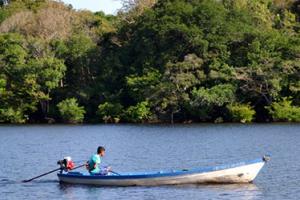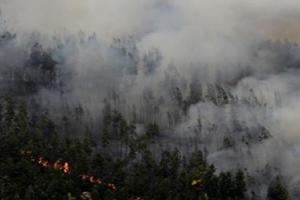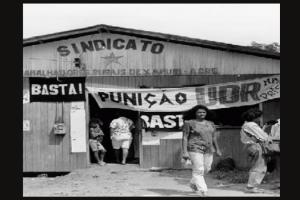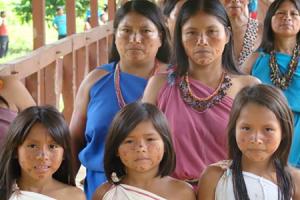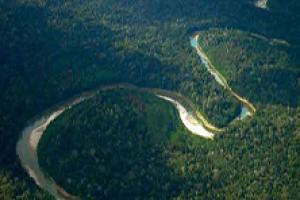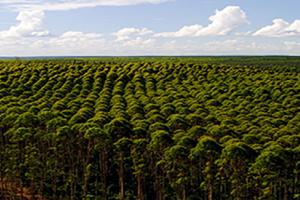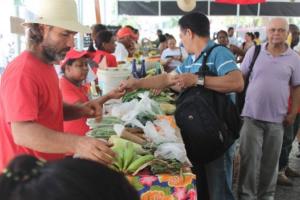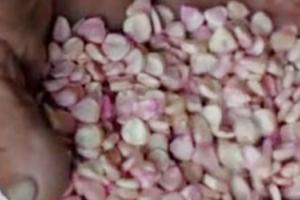Press Release
More than 80 organizations and individuals from all over the world sent today the letter enclosed below to relevant authorities in Brazil, Germany and California / USA rejecting “any and all attempts to intimidate or censor people and organizations that critique and oppose the environmental and climate policies implemented by the Acre government.”
Brazil
Action alerts
4 August 2017
Action alerts
24 July 2017
July 21, 2017
Dear friends,
We need your support to the motion enclosed below in solidarity with leaders from communities and organizations from the State of Acre in Brazil who are being pressured and threatened due to their critics and oposition to the climate and environmental policies being implemented by the state government in Acre.
Bulletin articles
11 July 2017
The January 2017 bulletin focused on the numerous initiatives being announced worldwide that promote the expansion of millions of hectares of tree plantations (Bulletin 228, January 2017). At the same time, the plantations and pulp and paper industries, among others, are strongly pushing for Genetically Engineered (GE) trees – eucalyptus and poplar in particular – to be licensed for commercial use. Consequently, this time, the editorial of the WRM Bulletin warns about the promotion of GE trees.
Bulletin articles
10 July 2017
Dercy Teles of Carvalho was the first female president of a Brazilian Rural Workers' Union, in the town of Xapuri, Acre in 1981. Xapuri became known nationally and internationally because of the union leader who succeeded Dercy: Chico Mendes. We spoke with Dercy at the recent gathering—"Effects of environmental and climate policies on traditional peoples: forest management, REDD, PES [Payment for Environmental Services]"—about the rich history of the rubber tappers' popular movement, including difficulties, lessons learned and challenges (1).
Bulletin articles
7 July 2017
How to make the sustainability of life the center of debate
Other information
7 July 2017
Artigo 19 launches its report "I came here to understand: What is carbon? Access to information and the green economy in Pará." The report analyzes and criticizes the absence of processes that facilitate transparent access to information, and social participation, in the existing projects in Pará related to the carbon market and the REDD+ mechanism (Reducing Emissions from Deforestation and Degradation). You can read the publication in Portuguese here: http://artigo19.org/blog/2017/03/24/11201/
Bulletin articles
7 July 2017
In support of indigenous organizations in Peru, the Indigenous Missionary Council of Brazil (CIMI) expresses great concern for and stands in defense of the lives of indigenous peoples in voluntary isolation, who live on the border of Brazil (Acre) and Peru (Madre de Dios). These peoples are currently threatened by the project to build a highway on the Peruvian side, which would connect Puerto Esperanza with Iñapari.
Action alerts
14 June 2017
We, forest dwellers, rubber tappers, Apurinã, Huni Kui, Jaminawa, Manchineri and Shawadawa indigenous people, members of supportive organizations and the Jesuit Travelling Team, teachers from different universities, united in the city of Xapuri in the Brazilian state of Acre from 26 to 28 May 2017, at the meeting "The effects of environmental / climatic policies on traditional populations", declare:
- That, at this moment of resurgence, we are unifying the struggles of indigenous peoples and rubber tappers in the same cause. Our union is our main weapon against capital.
Bulletin articles
15 May 2017
About fifty years ago, Aracruz Celulose, now called Fibria, replaced original Atlantic Forest with the first fast-growing eucalyptus plantations in the northern part of Espírito Santo State, Brazil (1). Forty years ago, an industrial pulp complex— now owned by Fibria — was installed in the main Tupiniquim indigenous village (Macacos), in Barra do Riacho, Aracruz district. Now in 2017, drought punishes the remaining villages and families in resistance, and contamination serves as a political weapon to expropriate their territories.
Bulletin articles
15 May 2017
To begin to discuss in depth the production and consumption of food, especially in a country like Brazil, it is necessary to recall and mention a series of points.
Other information
8 February 2017
In the Brazilian state of Espirito Santo, the Landless Peasant Movement MST is occupying some 400 hectares of land appropriated by pulp and paper company Fibria (formerly Aracruz Celulose). 190 families have already established a camp and are preparing the land for the cultivation of food free of pesticides.
